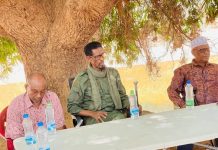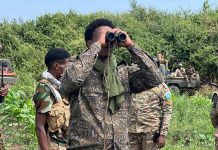
The risk of famine still lingers in Somalia among displaced people despite increased humanitarian assistance and rains bringing some relief from the devastating drought, UN humanitarians said on Tuesday.
However, the UN Office for the Coordination of Humanitarian Affairs (OCHA) warned of a funding shortfall and continuing violence affecting the delivery of relief.
According to OCHA, the UN Children’s Fund (UNICEF) reported the lack of financing could affect its provision of water and sanitation services, emergency education and nutrition services. The World Food Programme (WFP) had to cut food assistance from more than 4 million people assisted in March to 1.8 million people in July.
The office said more partners would be forced to suspend, scale back or shut down programs if additional funding is not received immediately.
In addition to the lack of resources, violence continues to hamper the humanitarian response, OCHA said, noting that on July 25, Medecins Sans Frontieres announced its withdrawal of support to the General Hospital in Laas Caanood due to insecurity.
Despite the threat of violence, the humanitarian office said relief assistance continues to be delivered.
“As of June, our partners have reached some 5.7 million people,” OCHA said. “A polio vaccination campaign has just been completed, reaching 2.4 million children under the age of 5 years across the country.”
The office said that halfway through the year, the Humanitarian Response Plan for Somalia received just 33 percent of the 2.6 billion U.S. dollars needed, heavily impacting the work of the United Nations.
Humanitarian assistance must be sustained to avoid a slide into the worst outcomes in Somalia, OCHA said.











